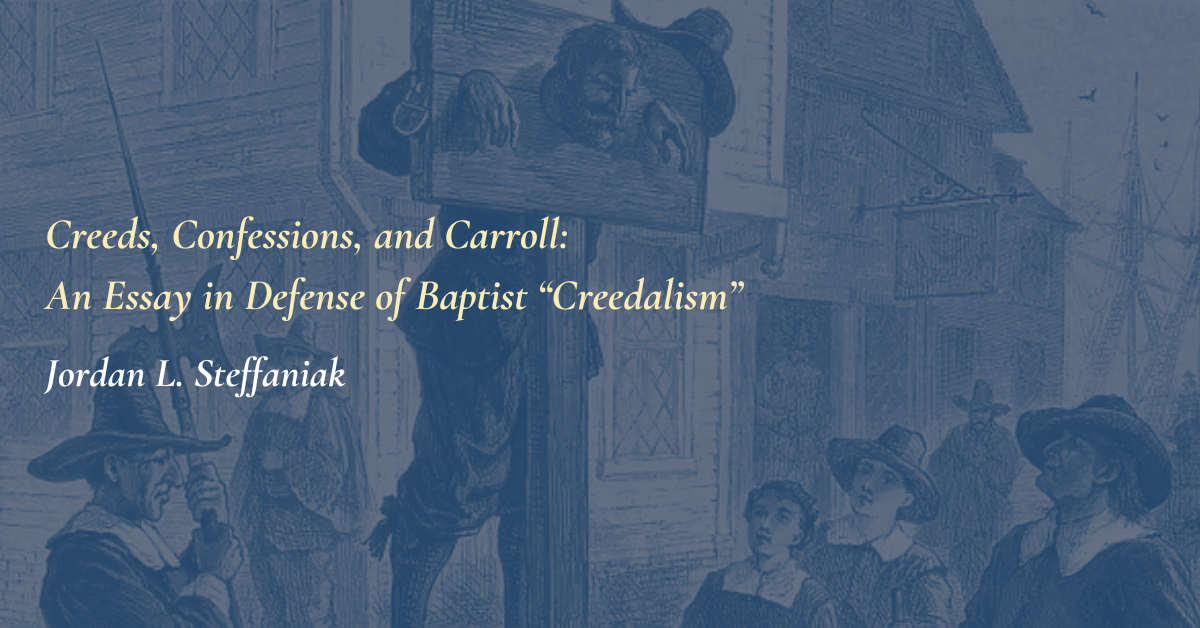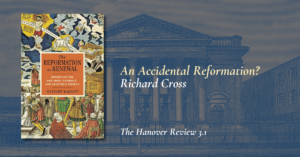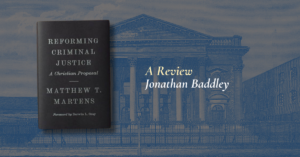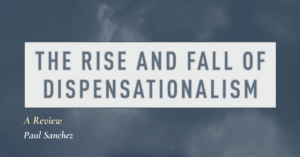[Editor’s Note: The original title of this essay has been modified since its original publication due to unnecessary offense and confusion that distracted from the substance of the essay itself. It was changed on 2/7/24]
It is common fare to read criticisms of robust creedalism and confessionalism in modern Baptist life. These often arise from those in Southern Baptist circles jealous of distorted 19th and 20th century priorities. Concepts such as “soul competency” become the bedrock of Baptist life and thought. Highly individualistic hermeneutics become unshakeable. They become “axioms” of a confused tradition. As E.Y. Mullins (1860–1928) said, “Since the Reformation this axiom has found expression in nothing more than in the exercise of the individual’s right of private interpretation of the Scriptures.”1E. Y. Mullins, The Axioms of Religion (Philadelphia: The Griffith & Rowland Press, 1908), 94. This is one reason why contemporary thinkers like Malcom Yarnell claim that confessions have no authority. They would bind individual souls. Lest I misrepresent, consider his own claim:
Respecting religious liberty and the freedom of the conscience as well as the priority of the local church covenant, true Baptists do not invest their statements of faith with any pretense to external authority.2Malcolm Yarnell, “Musings on Christ: Our Faith,” accessed January 31, 2024, https://www.malcolmyarnell.com/p/the-apostles-i-believe-in-god-father.html.
I’ve argued elsewhere that this anxiety toward creeds and confessions is misplaced. Giving creeds and confessions a derivative, though real, authority is not a so-called “abomination of creedmaking” as W. O. Carver (1868–1954) would have it. Nor is it a constrictive Presbyterian view of confessions as Yarnell thinks.3Jordan L. Steffaniak, “An Abomination of Creedmaking?,” Ad Fontes, December 19, 2023, https://adfontesjournal.com/davenant-hall-course-preview/an-abomination-of-creedmaking/. Instead, it is both the historic Baptist position and the most prudent way to guard the good deposit entrusted to us.
Most recently, Yarnell penned yet another essay criticizing Baptists’ historic use of creeds and confessions. In roughly 1,250 words Yarnell, alongside Steve McKinion, suggests we use B.H. Carroll (1843–1914) as “a standard for the use of Baptist confessions.”4Malcolm Yarnell and Steve McKinion, “On Baptist Creedalism,” accessed January 31, 2024, https://www.thebaptistreview.com/editorial/on-baptist-creedalism. Future quotations and references come from this same essay. They then provide nine “ways forward” we can glean from Carroll. Unfortunately, Yarnell neither provides a way forward for Southern Baptists nor an accurate representation of Carroll. Therefore, I find it necessary to defend a more consistent and historically accurate view of Baptists, Carroll, and confessions. In what follows I interact specifically with their recent essay On Baptist Creedalism and Carroll’s own thoughts on creedalism and confessionalism before sketching a positive vision for Baptist confessionalism. Therefore, my essay mixes historical criticism and theological criticism, making use of both tools. I also make special reference to Southern Baptists throughout as they are my family and are at a greater crossroads considering the nature of confessions than other groups. But none of these principles are exclusively Baptist, so other Protestant traditions should feel free to cross reference their own denominational divines in what follows.
On Open Disagreement
I should note before progressing that not all controversies ought to be taken up with the pen (especially not the tweets). Many should be ignored or overlooked with love. Yet some deserve fair-minded and respectful, though necessarily sharp, engagement. I believe the nature of confessionalism is one of those controversies. I also believe that avoiding direct confrontation and names is of no benefit. Direct, clear, and brotherly disagreement is of great benefit. The so-called “eleventh commandment” does us no favors. Therefore, I suggest that Yarnell and McKinion are sincere brothers and yet wrong on creeds and confessions. My criticisms should not detract from my admiration for many who are genuinely worried about the specter of a domineering confessionalism. Indeed, I know McKinion personally and consider him a wonderful man, scholar, and churchman. I remain eager to learn from him and those who labor with him. But on the use of creeds and confessions, especially in Baptist life, I sharply (and Lord willing, charitably) disagree.
Creeds, Confessions, and Carroll
Yarnell and McKinion in their essay provide nine ways forward, apparently inspired by Carroll. They believe Carroll can provide “a standard for the use of Baptist confessions.” On this, we agree. Carroll can provide a standard (though, we shouldn’t make any one figure the standard). But nowhere is Carroll cited to determine if their “way forward” is actually inspired by Carroll or if their retelling is simply Yarnell and McKinion’s perspectives cloaked in Carroll’s name. True enough, their essay is an online editorial. But anyone familiar with Carroll on creeds and confessions should be suspicious of their retelling of the story.
On Areas of Commonality
Five of their points from Carroll are not distinctive of Carroll, Baptists, or any Protestant group. They are, for the most part, rather vanilla claims that Protestants agree on. They are points that Baptists and Presbyterians (and whoever else) should affirm together.
Yarnell and McKinion remind us in point one that creeds and confessions are different. We shouldn’t take the Westminster Confession of Faith, the Savoy Declaration, the Philadelphia Confession, or any other confession as the bedrock ecumenical document that all Christians must believe. That is reserved for creeds like the one produced at Nicaea. Few would disagree. Likewise, they remind us in point two that creeds are the essence of the faith and more fundamental than confessions. But again, I know of none who would argue that the Baptist Faith and Message is equally or more fundamental than the Apostles’ Creed. In their fourth point they suggest Christian creeds have variable descriptions. But no one denies this. It is the content that remains unchanging. In point six they argue that different confessions serve different contexts. Some churches choose to use thinner confessions (or simply creeds) for tests of membership and more robust confessions for elders or teachers. But this practice is common in Baptist and non-Baptist contexts alike. Finally, they remind us in point eight that different doctrines are weighted differently. We should cling tighter to Christological doctrines like the two natures of Christ than to various ecclesiological ones like congregationalism. But again, this is the very point of the creed-confession distinction.
Why include these points of near-universal agreement? If the purpose is to use Carroll as a model of confessionalism, fine and good. But if their essay is designed to show how Carroll distinguishes “Baptist teaching about creeds and confessions from other traditions, such as Roman Catholicism or Presbyterianism,” highlighting these areas of obvious commonality doesn’t advance their thesis.
On Areas of Disagreement
The other four points, by my lights, are not from Carroll at all. In fact, they are irreconcilable with Carroll’s own words. Yarnell and McKinion, in point three, claim that Carroll “refrained from permanently defining” the creed. But reading Carroll’s own words gives a very different impression. Consider the following samples:
- Carroll argues that creeds refer to a “body of truth concerning Christ which was delivered to God’s people.”5B. H. Carroll, The Faith That Saves (Dallas: Helms Printing Company, 1939), 92. It is not merely a matter of opinion or one of constant revision. It is a “body of truth.”
- “This body of truth, whatever it is, that was once delivered to the saints must be contended for earnestly. It must never be lightly esteemed, and whenever it is necessary and any part of that body of truth is jeopardized, the true lover of Jesus Christ will earnestly contend for whatever our Lord Jesus Christ commanded us to believe or to do. And he will evince a spirit of absolute disloyalty if he regards with even indifference any addition to, subtraction from, or diminution of, the body of truth once delivered to the saints.”6Carroll, The Faith That Saves, 92. For a “body of truth” to be defendable, it must be definable. There must be propositional formulations of various doctrines in mind if they can be added to or subtracted from. If so, how could Carroll’s words be taken to mean that he “refrained from permanently defining” the creed?
- “The creed and the confession of that creed stand right at the door of the church. The man without a creed cannot come in. The man who has a creed and will not declare it cannot come in. He must not only in his heart believe, but with his mouth he must make confession and that confession is a necessity as well as the inside faith which it declares.”7Carroll, The Faith That Saves, 94. What is it a man confesses? His creed. For a creed to be declarable, it must be definable. It is unclear to me how Carroll couldn’t permanently define the creed if a reluctance to declare it would bar men from the church.
- “Now that is a creed. You say you don’t believe in creeds you want religion and not a dogma. You have no particular creed. Well, I am sure then that you have no particular religion. Whatever a man believes, that is his creed and bound to be his basis of life.”8Carroll, The Faith That Saves, 95. How can we assume Carroll refrained from defining the creed if those without them have no religion?
- “Is there any importance in that creed? The Apostle Paul distinctly says that unless that creed, in its three items be accepted, that all preaching is vain and that all faith is vain and that men are yet in their sins, and that your trusting fathers and mothers that sleep in the cemetery are perished. It really reflects upon the intelligence of a reasoning man to say that he has no creed or that he objects to creeds or that he objects to a confession of that creed. If he has it, it is right to state it. He has a right to state it orally, or to state it by the pen. It may be written, it may be printed, but surely that much creed is essential to the salvation of a soul. Who wants people to cut out any one of these three vital constituent elements of the Gospel of Jesus Christ by the reception of which men are saved and their sins forgiven?”9Carroll, The Faith That Saves, 96. Here Carroll is insistent that the Apostle Paul’s three creedal items in 1 Corinthians 15 must be accepted. How else can we understand this but by permanent definition?
- “Are you prepared to give up any item of this creed? Is it not a comprehensive one? What one of these elements would you blot out? And why should you seek to become a member of the church unless you accept it in your heart, and if you do accept that in our heart, what is the objection to declaring it with your lips, and if you do declare it with your lips, why not put it down in writing?”10Carroll, The Faith That Saves, 101. How could Carroll be doing anything here but making the creed a permanent fixture, defined with specific content that does not shift over time?
- “If my creed was some inarticulate thing, if it was nebulous like a spray of star dust in the skies, or if it was shifting like the change of the shapes of floating clouds, or if it was traceless like the track of a serpent across a rock or the flight of an eagle through the air, I never could say, ‘I am persuaded.’ The persuasion takes possession of my heart and of my soul that no power above nor below, no distress, no famine, no peril, no nakedness, no spirit, no devil, no future, no past shall ever be able to separate me from the love of God in Christ Jesus our Lord. A man without a creed cannot have that persuasion.”11Carroll, The Faith That Saves, 97. Here Carroll is explicit in his rejection of shifting and changing creeds. A creed is affirmed and can be argued with the intention to persuade. And as noted earlier, there are ecclesial consequences for conflicting creeds. Thus, for a creed to be debatable, it must be definable.
It is abundantly clear to me that Carroll is more than comfortable placing a stake in the ground and “permanently defining” the creed. In Yarnell and McKinion’s fifth point they claim that “in line with apostolic precedent, Carroll never finally settled on any fixed human confession of the divinely given creed.” But what apostolic precedent do Yarnell and McKinion refer to? Toward the end they refer to Cyril and his proclaimed attitude toward creedal preservation. But Cyril was no purveyor of avoiding fixed human confession of the divinely given creed. The patristic fathers in general thought it was a crime to innovate beyond the Nicene faith.12Richard Price and Michael Gaddis, trans., The Acts of the Council of Chalcedon, vol. 1 (Konzil, Liverpool: Liverpool University Press, 2007), 22. The fathers at Chalcedon were clear: “accursed who innovates.”13Price and Gaddis, The Council of Chalcedon, 1:170. Cyril himself explains that there is a tacit refusal to go beyond Nicaea even in the slightest respect.14Cyril of Alexandria quoted in Price and Gaddis, The Council of Chalcedon, 1:182. Furthermore, no Protestant denies the fallibility of creeds or confessions in principle. Even the Westminster Confession of Faith has been revised. No one is claiming a confession is infallible or on par with Scripture. Herein we see a mixing of creed and confession when convenient. While they’ve noted the difference between the terms, it becomes difficult to sense the distinction. Yarnell and McKinion begin by noting that there is no fixed confession of the creed before giving examples of revising confessions—but not the Nicene or Apostles’ Creed.
In their seventh point they criticize Alexander Campbell (1788–1866) and his limiting of the usefulness of creeds. They suggest Carroll wouldn’t go so far as to cry with him “less creed and more liberty.” But Campbell’s calling card was more consistently “no creed but the Bible.” And his general rationale is (rather ironically) more consistent with the painting of confessionalism that Yarnell seems to desire:
Now all the abstract views of God and man, of things present and future, with which these confessions are replete are matters of opinion; and as the general character of these books should fix upon them their name, they should be styled Confessions of Opinions… Perfect freedom and liberty should be granted to all opinions.15Alexander Campbell, Christianity As It Was At The First (Birmingham: D. King, 1867), 28.
Confessions are not of dogmatic status and have no authority for Campbell. We should preserve freedom and liberty. That sounds rather familiar.
Finally, in point nine, Yarnell and McKinion suggest that confessions only have authority at the local church level. But nowhere do we see a citation from Carroll to support this belief. They claim that “he would also approve the use of confessions to hold accountable the employees of human entities but warn strenuously against presuming a denominational construct has any priority whatsoever over the ruling presence of the only Lord Jesus Christ in his covenanted body.” But nowhere do we see a reference to Carroll’s writings. Nor do we have the background of our Baptist confessional heritage that drafted and deployed confessions for tests of associational membership beyond the local church level.
Consider Carroll’s own words again, here:
When you try a man before the church for heresy, you try him by the teachings of the Bible, not by the creed. But you use the creed this way: He has substituted his interpretation of the Bible for the interpretations of the church. While he has a right as an individual to his own interpretation, he has not the right to claim a place among you holding a different view. For instance, if a man wants to preach that there ought to be no church, no ordinances, like a Quaker, he is at liberty to do so, but should not do so occupying a Baptist pulpit and claiming to be a Baptist preacher. Common honesty demands that he shall not take the pulpit of a denomination to undermine the faith of that denomination.16Banajah Harvey Carroll, “Foundations of Our Faith,” Southwestern Journal of Theology 51, no. 2 (Spring 2009): 137.
Carroll is rather pointed that creeds identify and have authority over denominations—including the Baptist denomination. Given his own words, I find Yarnell and McKinion’s claim significantly out of step with Carroll’s own vision and practice.
The (Brief) Better Baptist Way
Yarnell and McKinion offer partially correct advice throughout their essay that could be minimally amended to serve a better Baptist way. For example: “Southern Baptists are heirs to a tradition which speaks about depends on and deploys “creeds” and “confessions” as they articulate the Scriptural faith without detracting from the ultimate authority of the Bible for faith and practice.” And they are also right in a further claim: Carroll provides wise advice for Baptists, indeed all Christians alike.
All Christians, Baptists especially, should build their faith, churches, and institutions on the solid ground of creeds and confessions, insofar as these documents faithfully communicate biblical doctrine. They should depend on and deploy them as expressions of the Bible’s own teaching. They do not depend on them as the firm foundation of Scripture. But we should understand creeds as fundamental articulations of the core of the Christian faith and confessions as public documents enforced by institutions (whether local churches or others) that are designed to fulfill several essential functions:
- To guard the faith once for all delivered to the saints.
- To protect churches from imposing personal interpretations on others.
- To promote unity by having transparent boundaries and emphasizing commonality.
- To serve as time-tested pedagogical tools.
Apart from creeds and confessions these goals are rarely maintained. But don’t take my word for it. Simply recount history—even Baptist history. Look to the results of the Salters’ Hall controversy in the early 18th century. Look to the unfortunate decline of the General Baptists in the 18th century (many of whom, though not all, were averse to creedal subscription). Look to the confusion and controversy over a myriad of doctrinal disputes that characterizes our current day. Apart from a public document like a confession, only mysterious and private groups wield power as they impose or neglect to enforce agreed upon doctrinal distinctives.
As we have seen, Carroll deploys creeds and confessions for these goals. He is abundantly clear that they serve function one, which is the most important. In one of his more memorable passages, he explains:
Now you just might as well proclaim yourself a simpering idiot as to stand there opposing those four things and say, “Oh, let’s not have any dogmas, creeds and confessions of faith; let’s have religion.” How can you have a creedless religion? You had just as well adopt as your god a jelly-fish floated up on the beach, that has no backbone, merely a pulpy mass, as to say, “I want a religion without a creed.” A man cannot have a religion without a creed and the religion he does have is not worth anything unless it is avowed. The avowal of it is a confession of faith. Now Spurgeon in his great sermon on the text I have just read called these four doctrines the four pillars of salvation. On top of these four pillars the superstructure is erected. If you pull down the pillars you pull down that which rests upon the pillars.17Carroll, The Faith That Saves, 96.
But creeds and confessions also protect individuals, churches, and associations because individualistic private judgments are actually detrimental to our ability to test all things by Scripture. When we have no sure and public standard for what is required for membership in a group, we are at the mercy of those in power to make their own private judgments. In such cases, disunity is certain to abound as the majority outside the room of power is left without a voice.
In closing, I share one more Carroll quote:
You hear it on every side, “I believe in religion but I don’t care anything about theology. I love flowers but I don’t care anything for botany. Let’s have a religion without any dogma.” Men take great credit to themselves in these utterances that they are free from the enslavement to dogmas. You must not take these people too seriously. They either don’t know what they are talking about, or else know what they say is utterly unworthy of human respect.18Carroll, The Faith That Saves, 92–93.
Indeed, everyone believes in dogma and wields it with dogmatic authority. It is merely a matter of whether they publicly recognize it.
[1] E. Y. Mullins, The Axioms of Religion (Philadelphia: The Griffith & Rowland Press, 1908), 94.
[2] Malcolm Yarnell, “Musings on Christ: Our Faith,” accessed January 31, 2024, https://www.malcolmyarnell.com/p/the-apostles-i-believe-in-god-father.html.
[3] Jordan L. Steffaniak, “An Abomination of Creedmaking?,” Ad Fontes, December 19, 2023, https://adfontesjournal.com/davenant-hall-course-preview/an-abomination-of-creedmaking/.
[4] Malcolm Yarnell and Steve McKinion, “On Baptist Creedalism,” accessed January 31, 2024, https://www.thebaptistreview.com/editorial/on-baptist-creedalism. Future quotations and references come from this same essay.
[5] B. H. Carroll, The Faith That Saves (Dallas: Helms Printing Company, 1939), 92.
[6] Carroll, The Faith That Saves, 92.
[7] Carroll, The Faith That Saves, 94.
[8] Carroll, The Faith That Saves, 95.
[9] Carroll, The Faith That Saves, 96.
[10] Carroll, The Faith That Saves, 101.
[11] Carroll, The Faith That Saves, 97.
[12] Richard Price and Michael Gaddis, trans., The Acts of the Council of Chalcedon, vol. 1 (Konzil, Liverpool: Liverpool University Press, 2007), 22.
[13] Price and Gaddis, The Council of Chalcedon, 1:170.
[14] Cyril of Alexandria quoted in Price and Gaddis, The Council of Chalcedon, 1:182.
[15] Alexander Campbell, Christianity As It Was At The First (Birmingham: D. King, 1867), 28.
[16] Banajah Harvey Carroll, “Foundations of Our Faith,” Southwestern Journal of Theology 51, no. 2 (Spring 2009): 137.
[17] Carroll, The Faith That Saves, 96.
[18] Carroll, The Faith That Saves, 92–93.
Author
-

Jordan L. Steffaniak (ThM, Southeastern Baptist Theological Seminary) is President of the London Lyceum and Publisher for Hanover Press. He is a Research Fellow for the Center for Faith and Culture at Southeastern Baptist Theological Seminary, a PhD candidate in Philosophy at the University of Birmingham, UK, and teaches at various institutions. He has a wonderful wife and three sons. He also works in the financial industry as a business intelligence manager.
Recent Posts



